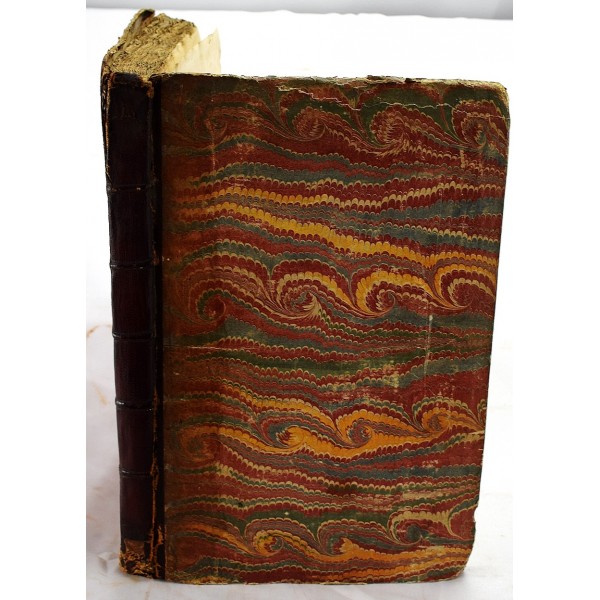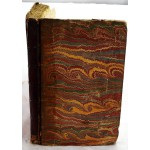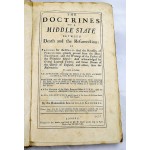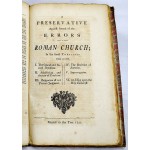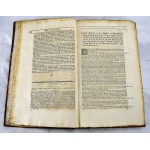The Doctrine of a Middle State Between Death and the Resurrection or Prayers for the Dead: and the Necessity of Purification Plainly Proved From the Holy Scriptures; and the Writings of the Fathers of the Primitive Church
The Doctrine of a Middle State Between Death and the Resurrection or Prayers for the Dead: and the Necessity of Purification Plainly Proved From the Holy Scriptures; and the Writings of the Fathers of the Primitive Church
Archibald Campbell
Pinted for the author, and sold by Mr. Tayler, 1721
Bound in contemporary calf-backed marbled boards. Front joint split. [2], xxii, 319 pages. Scattered foxing.
"A curious work, according to Boswell, written by a learned and respectable gentleman, a non-juring Bishop." - Lowndes I, page 360. A curious work with Appendix concerning the Descent of Christ into Hell. " The work of Rev. Archibald Campbell (1691-1756) is an illustration both of the Christian nature of the Scottish enlightenment, and of the stresses that this could engender. Campbell wrote about moral virtue in a commercial society, interpreting human motivation in a surprisingly liberal manner for a Presbyterian minister. His approach to luxury in a Calvinist context may not have been entirely new, but his views represented a radical reappraisal of ethical standards for many of his countrymen. Since Campbell was professor of Ecclesiastical History at St. Andrews, many conservatives felt that he represented a threat to his students. In the 1735 General Assembly his clerical opponents attacked the description of the nature of self love and the ideas about human happiness published in the Enquiry into the Original of Moral Virtue. They also found the Discourse proving that the Apostles were no Enthusiasts to be blasphemous in its description of Christ's followers as ordinary men in their response to the Crucifixion. Campbell defended himself successfully, and continued to teach until his death. He consistently argued that natural law and reason were clear guides to moral behaviour and to religious belief. He helped to formulate an eighteenth-century Scots perception of virtue which was grounded in Christian ethics, but which acknowledged the importance of reason, and accepted the reality of life in a commercial society." - Anne Skoczylas, "Archibald Campbell's "Enquiry into the Original of Moral Virtue", Presbyterian Orthodoxy, and the Scottish Enlightenment," The Scottish Historical Review, Vol. 87, No. 223, Part 1 (Apr., 2008), pp. 68-100.
